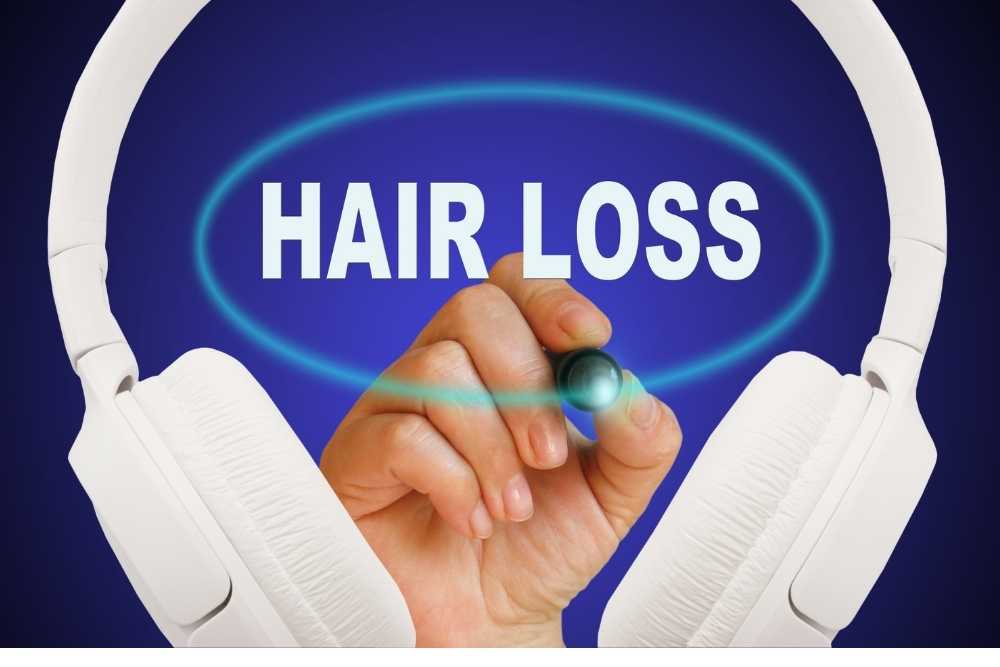Can Wearing Headphones Cause Hair Loss?
Can wearing Headphones cause Hair Loss? Many people have recently asked this question. There is a lot of debate on the topic, and it can be hard to know what is true and what isn’t. In this blog, we’ll look at the possible links between headphones and hair loss. We will also look at some of the scientific research that has been conducted on the subject You will have a better idea of whether or not headphones can cause hair loss by the end of this blog.
Can wearing headphones cause hair loss?

The answer might surprise you.
The Science behind Hair Loss and Headphones
Radiation from headphones can damage the hair follicles, which can lead to hair loss. However, the amount of radiation that headphones emit is relatively low, so the risk of hair loss from wearing headphones is also low. In order to cause hair loss, headphones would need to emit a lot of radiation, and most headphones do not emit enough radiation to cause hair loss.
So, if you’re worried about losing your hair from wearing headphones, you can rest assured that it is likely to happen.
How to protect your Hair while listening to music?
We all know that too much of anything can be harmful, especially when it comes to our hair. So what can you do to protect your hair while still enjoying your music? First, make sure to choose headphones that have low emission levels.
Second, set a daily limit on how much time you spend wearing headphones. And finally, be sure to take breaks in between listening sessions to give your hair a chance to recover.
Headphone Selection Tips:
There are a few things to look for when choosing headphones if you’re concerned about hair loss. Look for headphones that don’t snugly fit over your entire ear. Instead, select headphones that sit on top of your ear or have a looser fit. Additionally, look for headphones that don’t emit too much radiation.
The best headphones for people with thinning hair can help you feel more comfortable and can also help prevent further hair loss.
Tips for preventing Hair Loss while wearing Headphones:
If you’re concerned about the potential of headphones causing hair loss, there are a few things you can do to help prevent it:
- Make sure to clean your headphones regularly Bacteria can accumulate on the surface of headphones, causing irritation to the scalp.
- Wearing headphones for more than two hours at a time is not recommended. If you must wear them for an extended amount of time, make sure to take breaks and allow your ears to rest.
- Avoid using headphones that emit high levels of electromagnetic radiation. These can harm the hair follicles, resulting in hair loss. You can help avoid hair loss caused by headphones if you follow above tips.
A word of caution for those who love to listen to Music Loudly:
We’re all guilty of turning up the music a little too loud every now and then, but did you know that this could actually be damaging your hearing?
According to the World Health Organization, one in eight people worldwide suffers from some form of hearing loss. But it’s not just our hearing that can be affected by listening to music too loudly. Our hair can also suffer.
You might be wondering how music can affect your hair, but it all has to do with the headphones that we use. Headphones emit a type of radiation called electromagnetic radiation, which can be damaging to our cells.
Studies have shown that this type of radiation can actually cause hair loss. So if you’re someone who loves to listen to music loudly, you might want to consider using headphones that emit less electromagnetic radiation.
Conclusion:
So can wearing headphones cause hair loss? The answer is yes. Headphones emit a type of radiation called electromagnetic radiation, which can damage our cells and cause hair loss and can disturb healthy life. So if you’re someone who loves to listen to music loudly, you might want to consider using headphones that emit less electromagnetic radiation.






